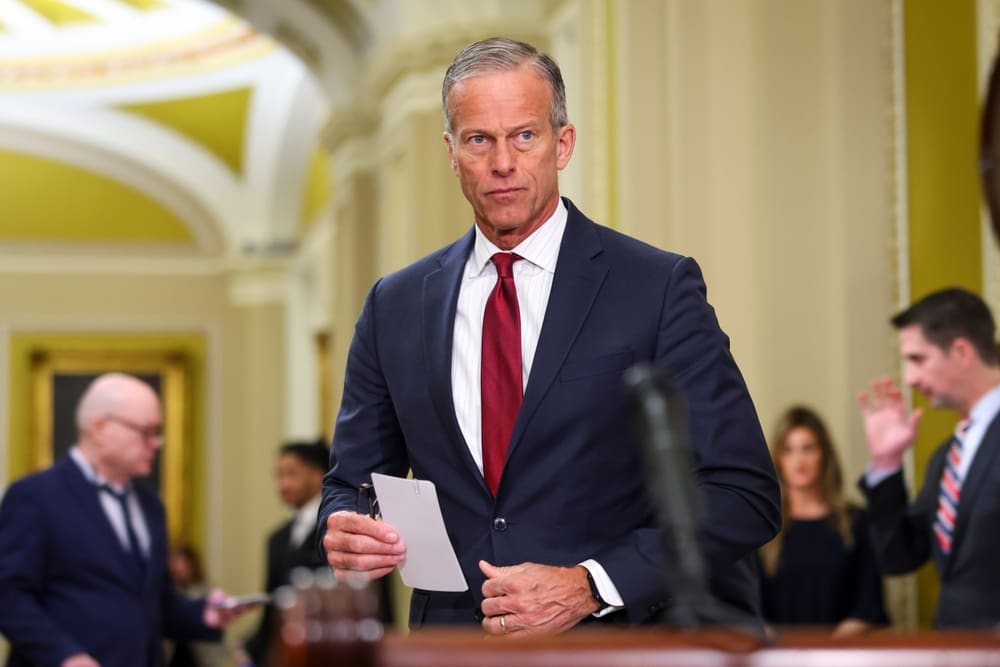Executive Summary
- Senate Republicans voted 53-45 to change chamber rules, allowing executive branch civilian nominees to be confirmed en bloc to accelerate President Trump’s appointments.
- The rule change, implemented using the “nuclear option” despite Democratic objections, aims to address a backlog of nominees that Republicans accused Democrats of “slow-walking.”
- This partisan move, which excludes Cabinet members and judicial appointments, establishes a new framework for processing executive branch civilian nominees and underscores escalating tensions in the Senate.
The Story So Far
- Senate Republicans, having accused Democrats for months of “slow-walking” President Trump’s nominees and creating a significant backlog, voted to alter chamber rules to accelerate confirmations. This move, which followed the collapse of bipartisan negotiations aimed at resolving the impasse, was implemented using the “nuclear option” despite Democratic objections that it would rush the process and allow potentially unqualified nominees to escape proper scrutiny.
Why This Matters
- The Senate’s new rule change, unilaterally enacted by Republicans, is set to significantly accelerate the confirmation process for many of President Trump’s executive branch civilian nominees, enabling his administration to staff key positions more rapidly. This move, however, underscores escalating partisan tensions within the chamber and raises concerns among Democrats about potentially reduced scrutiny for future nominees confirmed en bloc.
Who Thinks What?
- Senate Republicans voted to change chamber rules to accelerate the confirmation process for President Donald Trump’s nominees, arguing that Democrats were “slow-walking” appointments, creating a significant backlog, and that further delays were unacceptable.
- Democrats objected to the rule change, expressing disappointment that bipartisan negotiations failed at the last minute and arguing that Republicans were rushing the process without waiting for a fully negotiated proposal, raising concerns about unqualified nominees escaping proper scrutiny.
Senate Republicans on Thursday voted to alter chamber rules, a move designed to accelerate the confirmation process for many of President Donald Trump’s nominees, following the collapse of bipartisan negotiations with Democrats. The change, passed by a 53-45 vote, allows for executive branch civilian nominees to be considered and confirmed en bloc, or as a group, addressing what Republicans have described as a significant backlog.
The rule change was implemented despite objections from Democrats, who had engaged in intense, last-minute negotiations with Republicans to avert the use of the so-called “nuclear option.” Democrats argued that Republicans were rushing the process and should have waited until the following week for a fully negotiated proposal.
Senate Democratic Deputy Whip Brian Schatz expressed disappointment, stating, “I am legitimately shocked that we are 94% of the way there” and not moving forward. He added that waiting would “buy us the time we need and not cost the leader anything.”
Republicans, however, asserted that further delays were unacceptable. Senator James Lankford indicated a lack of trust between the parties, while Senate Majority Leader John Thune questioned, “How much time is enough?” Thune criticized the current process as “broken” and an “embarrassment,” arguing that the Senate had been forced to dedicate excessive floor time to nominations due to Democratic resistance.
For months, Republican senators have accused Democrats of “slow-walking” President Trump’s nominees, hindering the new administration’s ability to staff key positions. They contend that Democrats have abandoned Senate “precedent” of confirming many lower-level roles through voice votes, unanimous consent, or in groups.
The new rule change specifically targets executive branch civilian nominees, excluding Cabinet members and judicial appointments. Leader Thune later acknowledged he was “coming in a little hot” during his floor remarks but maintained that Republicans felt “strung along” by the Democrats’ requests for more time, necessitating immediate action.
Negotiations had reportedly centered on a plan initially proposed by Democratic Senator Amy Klobuchar, which would permit the confirmation of 10 nominees simultaneously. Republicans signaled a willingness to accept this if the number was increased to 15 nominees per Senate committee. However, Democrats were ultimately unable to secure unanimous consent from their members to implement the change on Thursday.
The “nuclear option” permits the Senate to change its rules with a simple majority vote, rather than the 67 votes typically required. Democrats, who themselves used this option years ago to weaken the filibuster for nominees, now express concerns that the Republican plan could lead to unqualified nominees escaping proper scrutiny, a claim Republicans deny. Confirmations under these new rules are not expected to commence until next week.
The partisan rule change underscores the escalating tensions in the Senate regarding presidential appointments, establishing a new framework for how executive branch civilian nominees will be processed.








